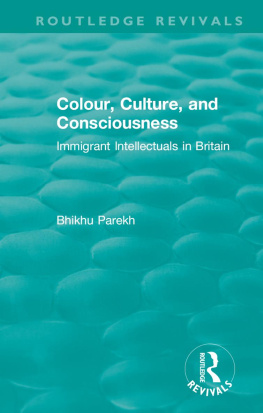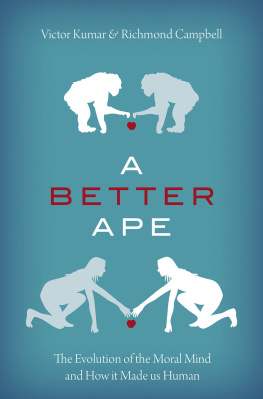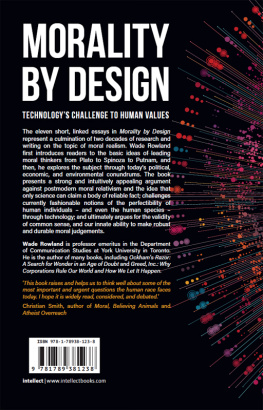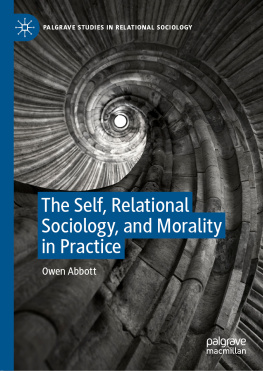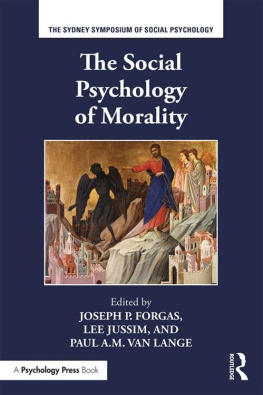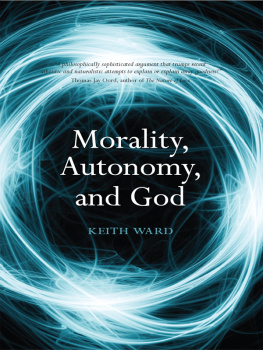
Everyday Moralities
From concerns of dwindling care and kindness for others to an excessive concern with self and consumerism, plenty of evidence has been provided for the claim that morality is in decline in the West, yet little is known about how people make-sense of and experience their everyday moral lives. This insightful book asks how late-modern subjects construct, understand and experience morality in a context of moral uncertainty. With a focus on two areas of morality and human conduct love and intimacy, and the human treatment of animals the author draws on the work of Bauman, Ahmed, Irigaray, Foucault and Taylor to construct an innovative theoretical synthesis, which is combined with new empirical material drawn from online diaries or blogs to examine the complex and intriguing ways that contemporary subjects narrate and experience everyday moral-decision-making. Providing theoretical and empirical insights into the contemporary production of morality and selfhood in late-modernity, Everyday Moralities sheds new light on the ways in which people morally navigate a changing social world and advances sociology beyond models of narcissism, moral loss and community breakdown. As such, it makes an important contribution to an underdeveloped area of the discipline, explicitly addressing the everyday ways morality is lived and practiced in a climate of moral ambiguity.
Nicholas Hookway is Senior Lecturer in Sociology within the School of Social Sciences at the University of Tasmania, Australia.
Morality, Society and Culture
The Morality, Society and Culture series publishes rigorous scholarly work exploring how moral questioning and action have been transformed in contemporary social relationships and by contemporary culture. Can cultural texts such as films, television broadcasts and art be vehicles for moral demands? Do we learn what it means to be good from soap opera and advertising? If cultural texts are forms of moral mimesis, then are the standards of the 'right' and 'good' dependent on external considerations of cultural visibility and social relevance - and if so, how are some moral issues made visible or invisible, relevant or irrelevant?
Now that morality has become cultural and is amenable to sociological and cultural study as well as philosophical investigation, this series explores how and to what effect moral questioning, action and debate are inextricably entwined with contemporary social and cultural forms, texts and institutions. The books in this series offer new understandings of the connection of morality, society and culture, analyse key contemporary events, and establish new methodologies.
Series Editor
Keith Tester is Professor at The Thesis Eleven Centre for Cultural Sociology at LaTrobe University, Australia and Senior Fellow at the Centrum Myli Jana Pawa II, Warsaw, Poland. He is the author of Humanitarianism and Modern Culture, Panic, Eric Rohmer: Film as Theology, Moral Culture, The Social Thought of Zygmunt Bauman, and Animals and Society, co-author of Conversations with Zygmunt Bauman and What Use is Sociology? and coeditor of Utopia: Social Theory and the Future.
Everyday Moralities
Doing it Ourselves in an Age of Uncertainty
Nicholas Hookway
Cosmologies of the Anthropocene
Panpsychism, Animism, and the Limits of Posthumanism
Arne Johan Vetlesen
For more information about this series, please visit: https://www.routledge.com/Morality-Society-and-Culture/book-series/ASHSER1429
First published 2019
by Routledge
2 Park Square, Milton Park, Abingdon, Oxon OX14 4RN
and by Routledge
52 Vanderbilt Avenue, New York, NY 10017
Routledge is an imprint of the Taylor & Francis Group, an informa business
2019 Nicholas Hookway
The right of Nicholas Hookway to be identified as author of this work has been asserted by him in accordance with sections 77 and 78 of the Copyright, Designs and Patents Act 1988.
All rights reserved. No part of this book may be reprinted or reproduced or utilised in any form or by any electronic, mechanical, or other means, now known or hereafter invented, including photocopying and recording, or in any information storage or retrieval system, without permission in writing from the publishers.
Trademark notice: Product or corporate names may be trademarks or registered trademarks, and are used only for identification and explanation without intent to infringe.
British Library Cataloguing in Publication Data
A catalogue record for this book is available from the British Library
Library of Congress Cataloging-in-Publication Data
Names: Hookway, Nicholas, author.
Title: Everyday moralities : doing it ourselves in an age of uncertainty / Nicholas Hookway.
Description: Abingdon, Oxon ; New York, NY : Routledge, 2019. | Series: Morality, society and culture | Includes bibliographical references and index.
Identifiers: LCCN 2018045740| ISBN 9781472481504 (hbk) | ISBN 9781315581347 (ebk) | ISBN 9781317138303 (epub) | ISBN 9781317138297 (mobi/kindle)
Subjects: LCSH: Social ethics. | Moral conditions. | Civilization, Western--21st century.
Classification: LCC HM665 .H67 2019 | DDC 303.3/72--dc23
LC record available at https://lccn.loc.gov/2018045740
ISBN: 978-1-4724-8150-4 (hbk)
ISBN: 978-1-315-58134-7 (ebk)
To Melody who has been part of this book from the beginning and who inspires me everyday
To Ellis and Sailor who teach me everything about patience, care and love!
To Robin who was the best mother-in-law a man could ask for and was probably right that the book title is too long.
I would like to thank the many people who have contributed to the making of this book. I am especially grateful to Daphne Habibis for believing in me and being such a generous and kind intellectual guide over the years. Without you my journey into the wonderful world of sociology would never have happened. A sincere thanks also to my colleagues at the University of Tasmania, in particular Doug Ezzy, who helped to shape the ideas in this book and has taught me much about what it means to be a sociologist.
I would also like to give a big thanks to Keith Tester for inviting me to contribute to this series, for the email exchanges on sport and life, and for teaching me about football (on a napkin) at The Vaults Restaurant in London in 2016. Thanks also to Neil Jordan at Routledge for supporting the project, Sara James for making the connection, and Alice Salt, who didnt savage me over missed deadlines and humoured my Roger Federer obsession.
Special thanks to my partner Melody who has endured the most in the writing of this book. Your unwavering support and care holds me together. And thanks to Ellis and Sailor for reminding me whats important. Maybe one day youll read Dads book about the brain.
It would be remiss of me to forget the vital role of the bloggers. There would be no book without them. Thank you for taking time and energy to hang out with me in online lands and letting me into your moral worlds.
Finally, thanks to the publishers for permission to make use of the following work in this book:
- Parts of Chapter 2 were previously published in Hookway, N. (2014) Moral Decline Sociology: Critiquing the Legacy of Durkheim,


